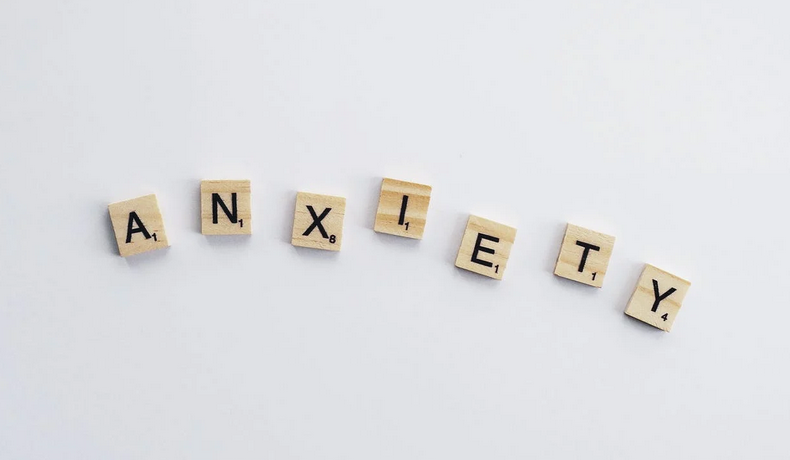Anxiety can feel like a shadow that follows you everywhere. It creeps in during quiet moments, disrupts your thoughts, and sometimes even paralyzes you with worry. You’re not alone if you’ve felt overwhelmed by anxiety’s grip. It’s a common experience for many people navigating the complexities of daily life. Managing anxiety doesn’t have to be an uphill battle. With the right strategies and tools, it’s possible to reclaim control over your thoughts and emotions. In this blog post, we’ll explore practical tips that can help ease anxiety and pave the way for a more peaceful existence. From understanding what triggers those anxious feelings to embracing lifestyle changes that promote wellness, every step counts on this journey toward relief. Let’s dive into these effective techniques together.
Understanding Anxiety and Its Effects
Anxiety is a natural response to stress. It’s our body’s way of signaling danger. Many people experience physical symptoms like rapid heartbeat, sweating, and fatigue. These reactions are not just in the mind; they manifest throughout the body. Emotional effects can be equally challenging. Feelings of dread, irritability, or restlessness may arise unexpectedly. The mental toll often leads to difficulties in concentration and decision-making. Simple tasks might feel insurmountable.
Identifying Triggers and Causes of Anxiety
Understanding what triggers anxiety is crucial for managing it effectively. Each person’s experience is unique, shaped by their past and present situations. Common triggers can include stressful events like job interviews or relationship issues. Even everyday tasks might evoke feelings of dread for some individuals. Take time to reflect on your experiences. Keep a journal detailing moments when you felt anxious. Note the specific circumstances surrounding those times.
Shifting Lifestyle to Manage Anxiety

Making small shifts in your daily routine can significantly impact anxiety levels. Start with physical activity. Exercise releases endorphins, those feel-good hormones that help reduce stress. Nutrition also plays a vital role. A balanced diet rich in fruits, vegetables, lean proteins, and whole grains fuels the body and mind. Avoid excessive caffeine and sugar; they can heighten feelings of anxiety. Sleep is another critical factor. Aim for seven to nine hours per night. A consistent sleep schedule helps regulate mood and energy levels throughout the day.
Desiring Professional Help for Severe Anxiety
When anxiety becomes overwhelming, seeking professional help is a vital step. They can help you explore the underlying causes of your anxiety. Understanding these factors often leads to effective coping strategies. Cognitive-behavioral therapy (CBT) is one popular approach that many find beneficial. It focuses on changing negative thought patterns and behaviors associated with anxiety.
Considering Mindfulness Techniques for Reducing Anxiety
Mindfulness techniques offer a powerful way to combat anxiety. They help anchor you in the present moment, reducing racing thoughts. Start with simple breathing exercises. Focus on each inhale and exhale. Notice how your body feels with every breath. This practice can create an immediate sense of calm. Guided meditations are also beneficial. Many apps provide short sessions tailored for anxiety relief, making them easy to fit into a busy schedule.
Managing anxiety is a journey, not a destination. It’s important to remember that you’re not alone in this struggle. Many people face similar challenges and have found ways to navigate through the waves of anxiety. By understanding its effects on your life, identifying triggers, and making necessary lifestyle changes, you can take meaningful steps toward relief. Mindfulness techniques can play a critical role too practices like meditation or deep breathing exercises help ground you in the present moment. Don’t underestimate the power of support systems as well. Building strong connections with friends and family offers comfort during tough times. Engaging with professionals when needed can provide additional insight into managing severe anxiety effectively.…








 Bloating and constipation are very common digestive issues that can be extremely uncomfortable. While there are different causes of these conditions, you can also follow some simple tips to help prevent them.
Bloating and constipation are very common digestive issues that can be extremely uncomfortable. While there are different causes of these conditions, you can also follow some simple tips to help prevent them.
 Abdominal pain can be a symptom of various conditions, some of them serious. If you’re experiencing abdominal pain, kindly visit a doctor so they can determine the cause. Don’t try to self-diagnose or treat your abdominal pain with over-the-counter medication. This could mask a more serious condition.
Abdominal pain can be a symptom of various conditions, some of them serious. If you’re experiencing abdominal pain, kindly visit a doctor so they can determine the cause. Don’t try to self-diagnose or treat your abdominal pain with over-the-counter medication. This could mask a more serious condition.
 Another critical consideration is therapeutic dosages. When it comes to nootropics, more is not always better. Taking too high of a dose can be harmful. That’s why it’s crucial to find a product with the right amount of active ingredients for you. To do this, you’ll need to know your body weight and the recommended dosage for the nootropic you’re interested in taking.
Another critical consideration is therapeutic dosages. When it comes to nootropics, more is not always better. Taking too high of a dose can be harmful. That’s why it’s crucial to find a product with the right amount of active ingredients for you. To do this, you’ll need to know your body weight and the recommended dosage for the nootropic you’re interested in taking. Finally, you’ll also want to consider the price of the supplement. Nootropics can range in price from a few dollars to hundreds of dollars. So, it’s crucial to find a product that fits within your budget. However, you also want to ensure you’re getting a quality product. To do this, it’s important to read customer reviews and compare prices.
Finally, you’ll also want to consider the price of the supplement. Nootropics can range in price from a few dollars to hundreds of dollars. So, it’s crucial to find a product that fits within your budget. However, you also want to ensure you’re getting a quality product. To do this, it’s important to read customer reviews and compare prices.
 One of the most common concerns with taking testosterone boosters is the potential for side effects. While there are some potential side effects associated with taking these supplements, they are generally considered safe when used as directed. The most common side effects include:
One of the most common concerns with taking testosterone boosters is the potential for side effects. While there are some potential side effects associated with taking these supplements, they are generally considered safe when used as directed. The most common side effects include: There are a few key things that men can do to increase their testosterone levels
There are a few key things that men can do to increase their testosterone levels
 First, let’s start with the most obvious sign: excessive worries. If you find yourself worrying more than usual or if your fears interfere with your daily life, it may signify anxiety disorder. Anxiety can cause you to worry about things that are usually not worth worrying about. For example, you may worry about your health even though you are perfectly healthy. Or, you may worry about what other people think of you even though you don’t know them.
First, let’s start with the most obvious sign: excessive worries. If you find yourself worrying more than usual or if your fears interfere with your daily life, it may signify anxiety disorder. Anxiety can cause you to worry about things that are usually not worth worrying about. For example, you may worry about your health even though you are perfectly healthy. Or, you may worry about what other people think of you even though you don’t know them. Now that you’ve learned some symptoms that impact one’s physical condition, let’s look at how anxiety disorders affect your body. Muscle tension is one of the most common physical symptoms of anxiety. If you suffer from muscle tension, you may feel tightness in your shoulders, neck, or back. You may also experience headaches and jaw pain. Muscle tension can make it difficult to concentrate and can cause fatigue. If you are experiencing muscle tension, it is essential to get help from a mental health professional as soon as possible. As you can see, anxiety disorders can cause various physical and mental symptoms.
Now that you’ve learned some symptoms that impact one’s physical condition, let’s look at how anxiety disorders affect your body. Muscle tension is one of the most common physical symptoms of anxiety. If you suffer from muscle tension, you may feel tightness in your shoulders, neck, or back. You may also experience headaches and jaw pain. Muscle tension can make it difficult to concentrate and can cause fatigue. If you are experiencing muscle tension, it is essential to get help from a mental health professional as soon as possible. As you can see, anxiety disorders can cause various physical and mental symptoms.
 Another thing to keep in mind is to use the correct golf equipment. If you’re using golf clubs that are too heavy or too light for you, it can put a lot of strain on your body and lead to injuries. The same goes for golf balls. If you’re using a golf ball that’s too hard, it can cause severe damage to your joints and muscles. Make sure to get fitted for golf clubs to use the right ones for your size and strength.
Another thing to keep in mind is to use the correct golf equipment. If you’re using golf clubs that are too heavy or too light for you, it can put a lot of strain on your body and lead to injuries. The same goes for golf balls. If you’re using a golf ball that’s too hard, it can cause severe damage to your joints and muscles. Make sure to get fitted for golf clubs to use the right ones for your size and strength. Finally, when playing golf, it’s essential to have good posture. Many golf injuries happen because people slouch when they swing or don’t keep their spine straight. That’s why it’s so important to focus on your posture and make sure that you’re standing up straight. Good posture will help you avoid back pain and other golf-related injuries.
Finally, when playing golf, it’s essential to have good posture. Many golf injuries happen because people slouch when they swing or don’t keep their spine straight. That’s why it’s so important to focus on your posture and make sure that you’re standing up straight. Good posture will help you avoid back pain and other golf-related injuries.